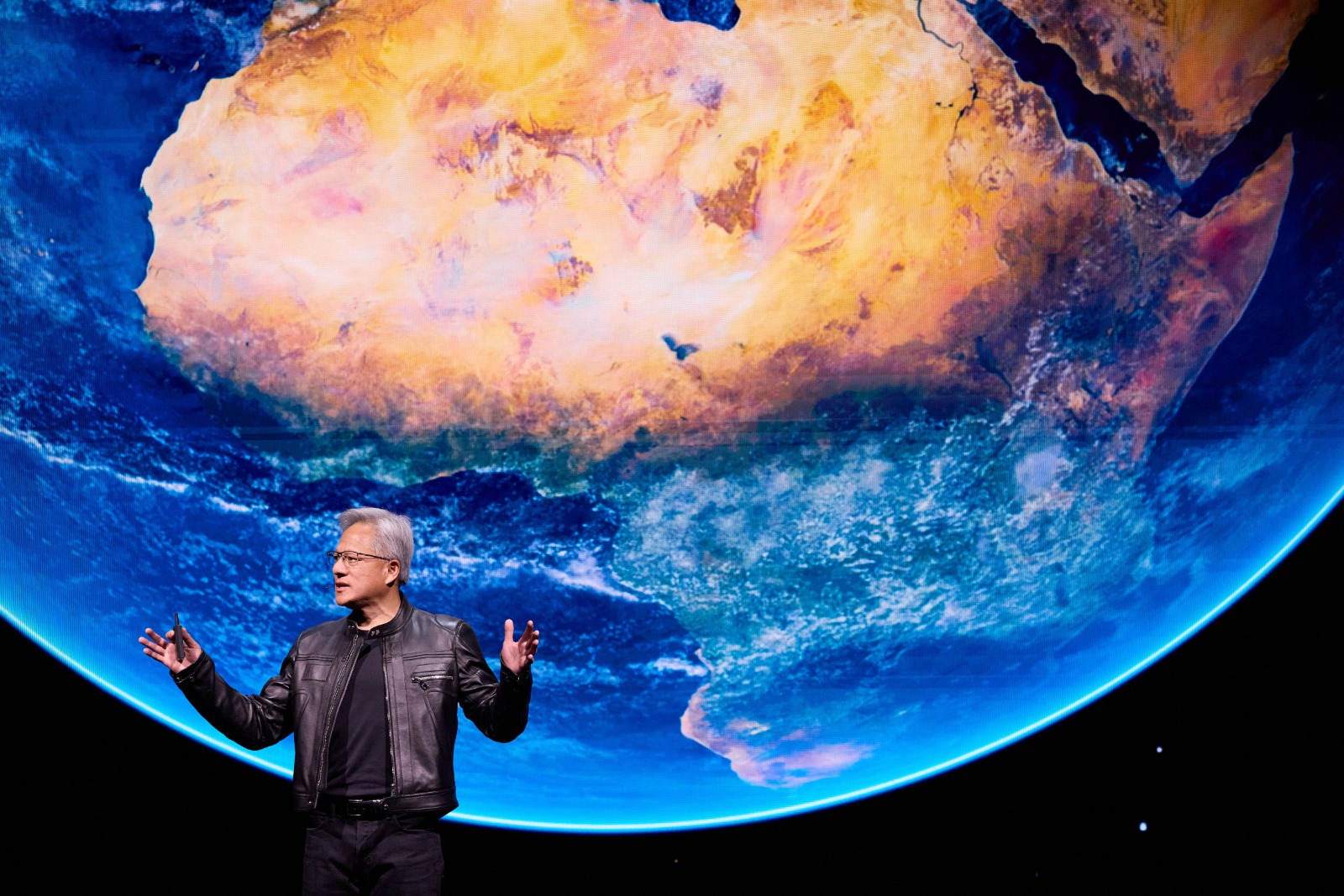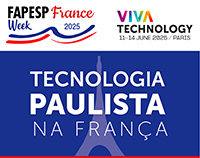

Huang emphasized that Europe is shifting its role in the artificial intelligence sector from consumer of AI technology to an AI infrastructure center (photo: Heitor Shimizu/Agência FAPESP)
At Europe’s largest innovation event, Jensen Huang, CEO of NVIDIA, describes a scenario in which factories, robots, and industrial systems will be developed and tested digitally before going into operation.
At Europe’s largest innovation event, Jensen Huang, CEO of NVIDIA, describes a scenario in which factories, robots, and industrial systems will be developed and tested digitally before going into operation.

Huang emphasized that Europe is shifting its role in the artificial intelligence sector from consumer of AI technology to an AI infrastructure center (photo: Heitor Shimizu/Agência FAPESP)

By Heitor Shimizu, from Paris | Agência FAPESP – Jensen Huang, founder and CEO of NVIDIA, spoke at Viva Technology (VivaTech) in Paris about the evolution of artificial intelligence (AI) and highlighted the company’s investments in expanding AI infrastructure in Europe.
In a packed auditorium, the most eagerly awaited talk of the event did not disappoint. Huang began by describing two technological waves in the field: perceptual AI, which interprets the world through sight, sound, and language; and generative AI, which is capable of creating text, images, and code. “In recent years, we’ve begun a new wave: agentive AI, whose physical manifestation – robotics – is coming soon,” he said.
Huang highlighted the transformation of data centers into active structures, known as “AI factories.” For him, these centers are no longer just back-end tools but have become artificial intelligence production units. “One example is Blackwell, an engineering marvel. We’ve never produced supercomputers like these before – and this is just the beginning,” he said, referring to NVIDIA’s new GPU (graphics processing unit) microarchitecture, designed to perform large-scale training and inference tasks. GPUs are the “brains” of artificial intelligence systems.
Europe played a central role in Huang’s speech, which emphasized the continent’s transition from consumer to producer in the artificial intelligence sector. NVIDIA is collaborating with companies such as Orange, Telefónica, Telenor, Swisscom, and Fastweb to deploy advanced infrastructure across the region. “Europe has woken up to the importance of building an AI infrastructure,” he said.
The expectation is that, in two years, AI computing capacity in Europe will increase tenfold, with a highlight being NVIDIA’s partnership with French startup Mistral AI, which aims to create a cloud dedicated to generative AI.
The NVIDIA CEO also addressed a growing challenge in AI deployment: specialization. As large language models become more optimized for legal, medical, customer service, or robotic tasks, their deployment and efficient management become more difficult.
Huang announced a plan to build the world’s first Industrial AI Cloud in Europe. “Everything physical will first be built virtually,” he said, pointing to a future where factories, robots, and industrial systems will be developed and tested digitally before going into operation.
USP and FAPESP at VivaTech
The University of São Paulo (USP) and FAPESP are present at the 9th edition of VivaTech, Europe’s largest startup and technology event, with a 100-square-meter stand to showcase innovations in various areas, such as agriculture, climate, energy, artificial intelligence, and health (read more at: agencia.fapesp.br/54959).
The program at the stand also includes the participation of USP professors, who, in addition to being available to investors, entrepreneurs, and visitors to the fair, are participating in roundtable discussions in which they present technologies developed by the centers of excellence to which they belong.
Among the central themes of the 2025 edition of VivaTech are: “The AI Revolution in Action,” which addresses advances in robotics, combating misinformation, and environmental protection; “Creative Industries,” highlighting how technology is reinventing music, film, fashion, and games; and “Tech Cares,” focused on innovations for well-being, such as artificial intelligence applied to drug development.
French President Emmanuel Macron visited VivaTech on the first day of the event, which also features conferences with some of the biggest names in global technology, such as Yann LeCun (Meta), Joe Tsai (Alibaba), Thomas Wolf (Hugging Face), Bernard Arnault (LVMH), and Brazilian Mike Krieger, from Anthropic, one of the two creators of Instagram.
VivaTech also announced the first edition of the “Top 100 Rising European Startups,” highlighting the 100 most promising European startups with the potential to transform their industries. The ranking includes companies from 13 countries, with Germany (36), France (22), and the United Kingdom (17) leading in the number of startups selected. The selection criteria included European headquarters, transformative innovation, minimum annual recurring revenue of €5 million in 2024, and annual growth of at least 40% over the last three years. The selected startups participated in a customized acceleration program during VivaTech 2025, with networking and visibility opportunities.
FAPESP’s participation in VivaTech is part of the FAPESP Week France program. For more information, visit fapesp.br/week/2025/france.
Republish
The Agency FAPESP licenses news via Creative Commons (CC-BY-NC-ND) so that they can be republished free of charge and in a simple way by other digital or printed vehicles. Agência FAPESP must be credited as the source of the content being republished and the name of the reporter (if any) must be attributed. Using the HMTL button below allows compliance with these rules, detailed in Digital Republishing Policy FAPESP.





